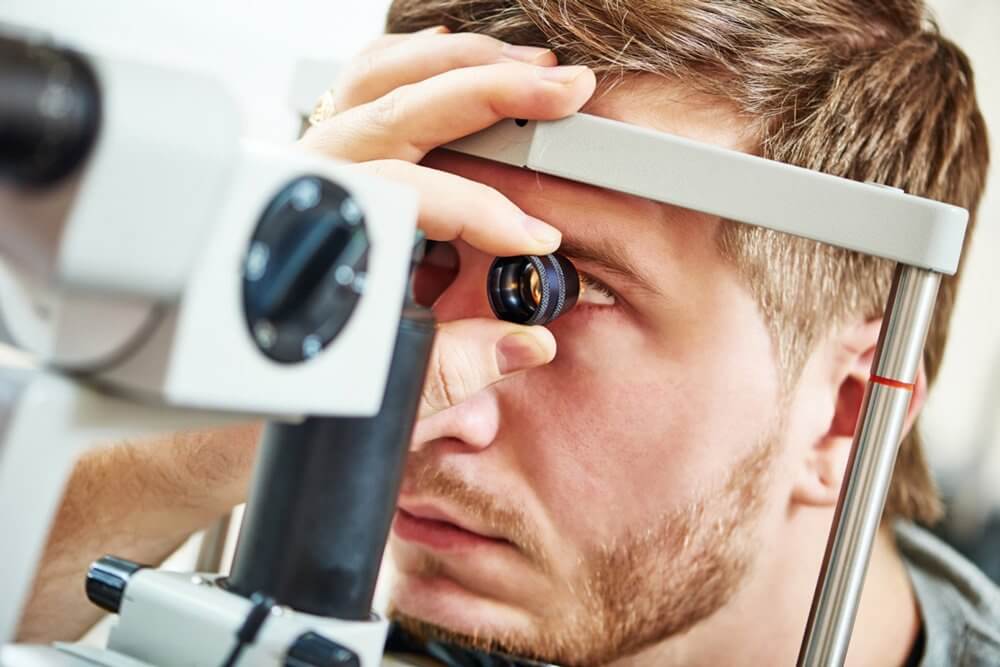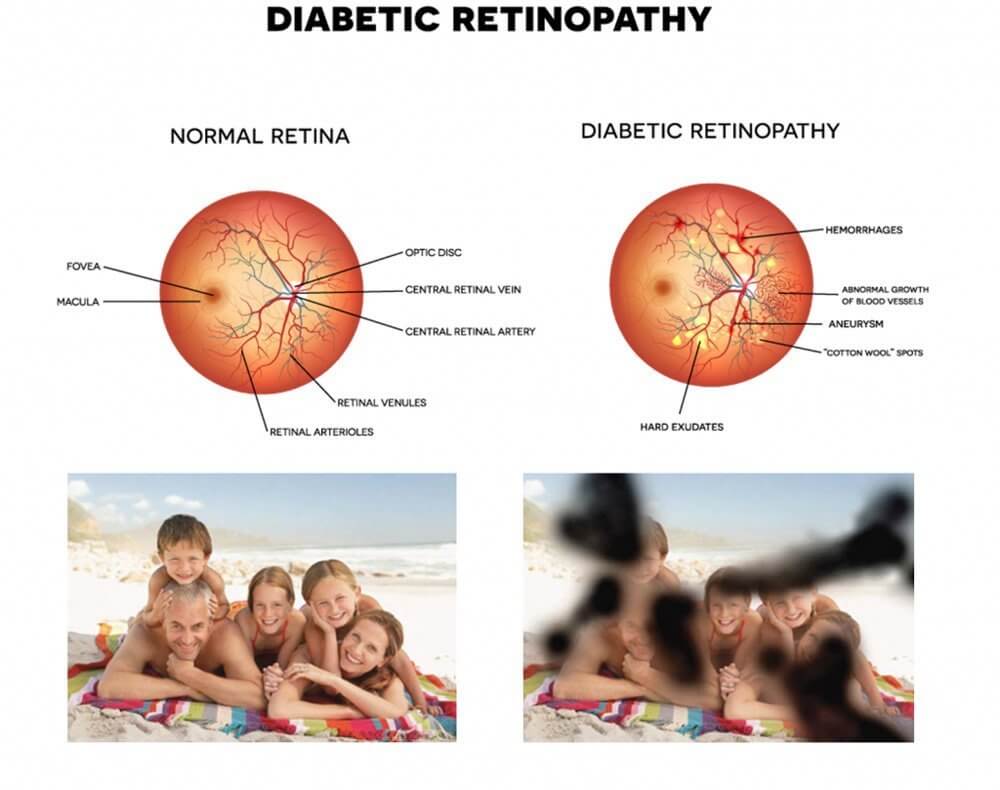Diabetic Retinopathy
Posted by: Invision Optometry in Category Diabetic Eye Care

Diabetic retinopathy is a complication of diabetes that affects the eyes. It is caused by damage to the blood vessels in the tissue at the back of the eye (retina). Anyone with type 1 or type 2 diabetes can develop the condition, as it is often the result of poorly controlled blood sugar. Diabetic retinopathy is the leading cause of blindness affecting all diabetics, and increases the risk of blindness if left untreated. Diabetes is a disease that affects the body’s ability to control blood sugar levels. It changes the blood vessels in your retinas, causing them to swell, leak, or even close off completely. Changes to the blood vessels in the retina usually affect both eyes, and can eventually result in vision loss that is irreversible. Like many conditions, the early stages of diabetic retinopathy may occur without symptoms. Because the disease often goes unnoticed until vision loss occurs, anyone with diabetes should get a comprehensive eye exam at least once a year to check for diabetic retinopathy. Early detection is key to preventing diabetes-related vision loss.
Annual Eye Exams Are An Important Part Of Maintaining Your Eye Health…
What Is Diabetic Retinopathy?
Diabetic retinopathy is a complication of diabetes that affects the eyes. It causes progressive damage to the retina, the light-sensitive lining in the back of the eye. Diabetic retinopathy occurs when changes in the blood glucose levels cause changes in retinal blood vessels. In some cases, these vessels will swell and leak fluid into the back of the eye. In other cases, abnormal blood vessels will grow on the surface of the retina. Over time, it can cause retinal tissue to swell, resulting in cloudy or blurred vision. The condition usually affects both eyes, and the longer a person has diabetes, the more likely they will develop diabetic retinopathy. Left untreated, it can eventually cause blindness.
Diabetic Retinopathy Can Be Detected During A Comprehensive Eye Exam…
What Causes Diabetic Retinopathy?
When people with diabetes experience long periods of high blood sugar, fluid can accumulate in the lens inside the eye that controls focusing. High blood glucose levels can also weaken and damage the small blood vessels within the retina. According to the National Eye Institute (2015), “Diabetic retinopathy can cause blood vessels in the retina to leak fluid or hemorrhage (bleed), distorting vision. In its most advanced stage, new abnormal blood vessels proliferate (increase in number) on the surface of the retina, which can lead to scarring and cell loss in the retina” (Para. 6). Stages of the disease include non-proliferative diabetic retinopathy (NPDR) and proliferative diabetic retinopathy (PDR). Non-proliferative diabetic retinopathy, also known as background retinopathy, is an early stage of the disease. In this stage, tiny blood vessels within the retina leak blood or fluid. This causes the retina to swell or to form deposits. Proliferative diabetic retinopathy is the more advanced form of the disease. In this stage, damage to the retinal blood vessels causes the secretion of a substance called vascular endothelial growth factor (VEGF). This causes abnormal blood vessels to grow on the surface of the retina and elsewhere in the eye. As a result, the blood vessels may also pull on the retina, causing retinal traction and detachment.
The Good News Is Diabetic Retinopathy Often Can Be Prevented With Early Detection…

What Are The Symptoms Of Diabetic Retinopathy?
Between 40 and 45 percent of Americans diagnosed with diabetes have some stage of diabetic retinopathy. But, only half are aware of it. This is because in the early stages of diabetic retinopathy, there are usually no symptoms. Early symptoms can include, floaters, blurriness, dark areas of your vision and difficulty perceiving colors. Because symptoms may not develop until the disease becomes severe, early detection through regular screening is important. The earlier it is detected, the easier it is to treat, and the more likely vision will be preserved.
NOTE: This Information Only Describes What Usually Happens But Does Not Apply To Everyone And Is Not Intended To Be Used As Medical Advice. Seek Attention Immediately If You Think You Have A Medical Emergency…
Treatment For Diabetic Retinopathy
In mild cases, diabetic retinopathy can be treated with careful diabetes management. In advanced cases, it may require laser treatment or surgery. While there is no cure for the disease, laser treatment can be effective at preventing vision loss if it is done before the retina has been severely damaged. Non-laser treatments include injections of corticosteroids or other medications into the eye, either directly, or in the form of an injectable implant.
Early Detection Is Key To Preventing Diabetic-Related Vision Loss…
Comprehensive Eye Exams
Treating diabetic eye disease is easiest when caught early. As a diabetic patient, you are predisposed to eye disease, but vision loss can be avoided with early detection. An annual comprehensive eye exam will help to detect any eye problems at their early stages, when they’re most treatable. During our comprehensive eye exam, we will determine your prescription for eyeglasses or contact lenses, and check your eyes for common eye diseases. Additionally, we assess how your eyes work together as a team and evaluate your eyes as an indicator of your overall health. If you have questions about our eye exam or need more information, call us today at (619) 222-2020 to learn how we can help.


